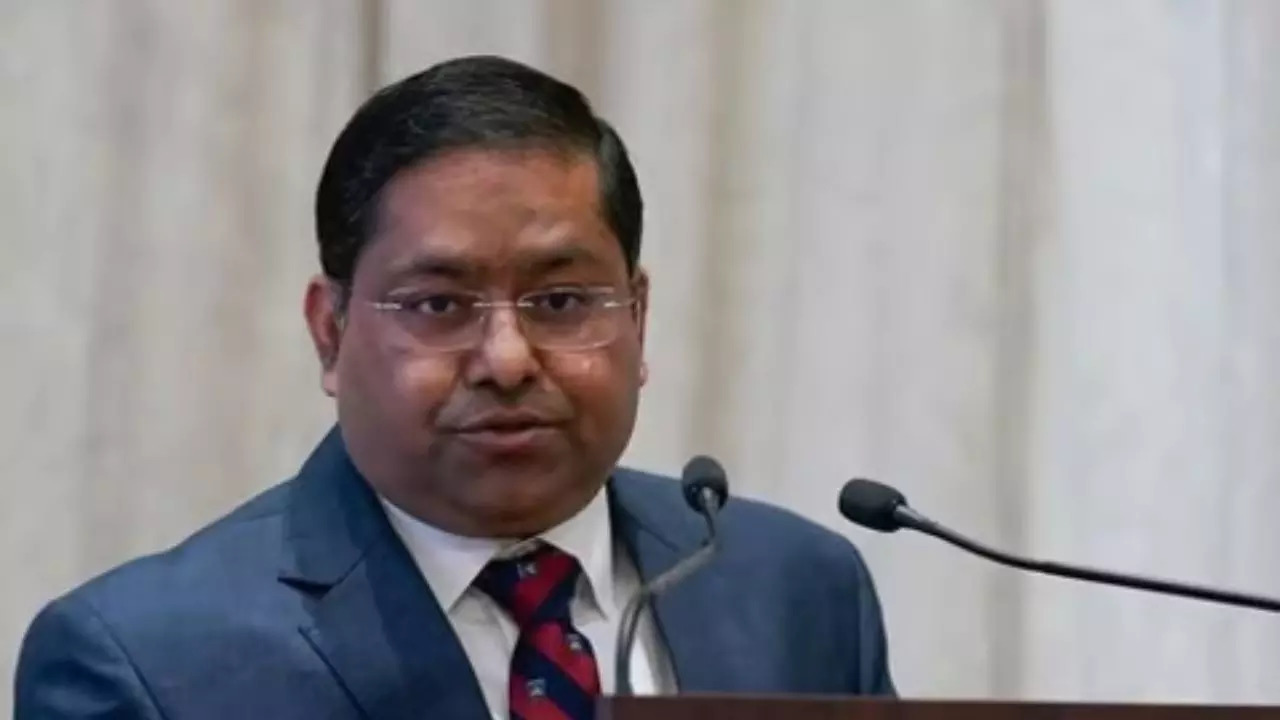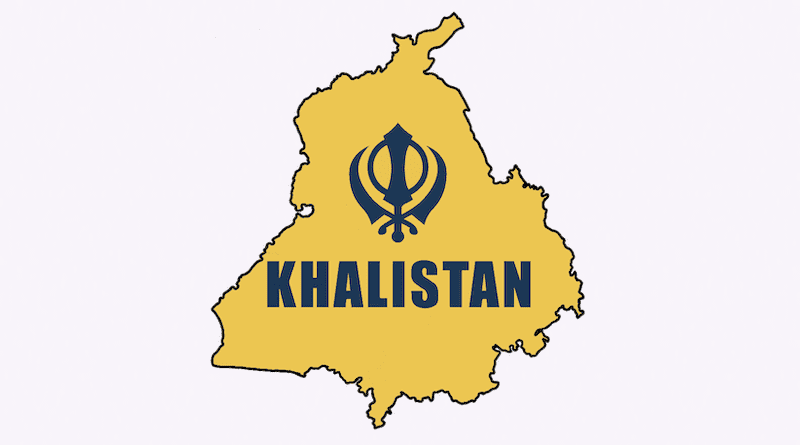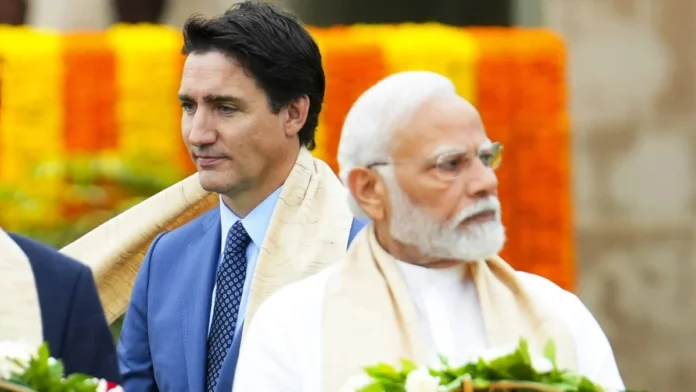The diplomatic rift between India and Canada, already fraught with tension, has taken another contentious turn with New Delhi accusing Ottawa of placing Indian consular officials under “audio and video surveillance.” In a move described as a “flagrant violation” of diplomatic conventions, India formally protested Canada’s alleged actions, marking yet another flashpoint in the increasingly strained relations between the two nations.
Allegations of Surveillance: India’s Response to Canada’s Actions
During a recent media briefing in New Delhi, Ministry of External Affairs (MEA) spokesperson Randhir Jaiswal addressed reports that several Indian diplomats in Canada were allegedly under surveillance. He confirmed that some Indian consular officials had been informed by Canadian authorities that they were, in fact, under audio and video monitoring, with their communications intercepted. According to Jaiswal, India views these actions as direct harassment and intimidation, which he asserted are incompatible with established diplomatic and consular conventions.

“By citing technicalities, the Canadian government cannot justify the fact that it is indulging in harassment and intimidation,” Jaiswal stated. He emphasized that India has formally raised the issue with Canada, calling the surveillance an unacceptable breach of diplomatic norms. For India, this surveillance underscores an environment of extremism and hostility that is already challenging for its diplomatic personnel.
Canada and India: A Diplomatic Relationship in Crisis
Relations between Canada and India have been deteriorating since Canadian Prime Minister Justin Trudeau made explosive allegations in September, suggesting a “potential” involvement of Indian agents in the killing of Khalistan extremist Hardeep Singh Nijjar in British Columbia. These accusations were met with swift denials from India, which dismissed the claims as “absurd” and baseless. However, Trudeau’s assertions triggered a cascade of diplomatic actions from both sides, bringing their already complex relationship into sharper conflict.
In response to Trudeau’s allegations, India expelled six Canadian diplomats and recalled its high commissioner, Sanjay Verma, along with other targeted officials. India has also maintained that the primary issue between the two countries is Canada’s leniency towards pro-Khalistan elements operating openly on its soil. According to Indian officials, these groups pose a threat to India’s national security and have been involved in extremist activities that go unchecked by Canadian authorities.

The Core of the Dispute: Pro-Khalistan Elements in Canada
India’s longstanding grievance with Canada centers on what it sees as Ottawa’s tolerance of pro-Khalistan groups within Canadian borders. Khalistan, a separatist movement advocating for an independent Sikh state, has been a source of tension between the two nations for years. India claims that Canada’s failure to act against these elements has led to an environment where anti-India sentiment can flourish unchecked, impacting not only India’s domestic stability but also its diplomatic relations abroad.
The surveillance allegations bring this underlying issue to the fore, suggesting that the diplomatic stand-off is not just about one incident but about broader concerns over how Canada handles extremism. From India’s perspective, Canada’s alleged surveillance actions only exacerbate an already hostile environment in which its diplomats operate. For New Delhi, this is not merely a bilateral dispute but a matter of principle and safety for its consular staff.
Canada’s Position and Diplomatic Justifications
While Canadian officials have not publicly commented on the allegations of surveillance, reports indicate that Ottawa may be citing technicalities to justify its actions. The exact nature of these technicalities remains unclear, but it hints at a possible legal or security rationale that Canada might be using to explain its monitoring of Indian diplomats. Canada’s position on the matter may be influenced by internal security concerns or diplomatic strategies aimed at asserting its stance in the ongoing conflict.
However, Canada’s perceived indifference to India’s concerns over pro-Khalistan elements could be seen as further deepening the divide between the two countries. From India’s standpoint, any justification offered by Canada falls short of addressing the core issue: the safety and respect for diplomatic staff as per international conventions.
Diplomatic Norms and the Impact on Bilateral Relations
The allegations of surveillance against Indian diplomats raise serious questions about the integrity of diplomatic conventions. Diplomatic norms, as enshrined in the Vienna Convention on Diplomatic Relations, ensure that diplomats are protected from undue interference by the host nation. Surveillance, especially of a covert nature, is generally considered a breach of these norms, which could have long-term repercussions on diplomatic relations if not addressed.
The implications of this alleged breach extend beyond just Canada and India. Other countries are closely watching the developments, as breaches of diplomatic protocol can set dangerous precedents. If left unresolved, the issue could undermine global diplomatic standards and embolden other nations to engage in similar actions.
What’s at Stake: Canada’s Global Image and India’s Diplomatic Stance
For Canada, this controversy could impact its reputation as a defender of international norms and human rights. Prime Minister Trudeau’s government has often taken a strong stance on global issues, positioning Canada as a moral authority on matters of justice and diplomacy. However, the surveillance allegations, coupled with the unresolved issue of pro-Khalistan elements, present a challenge to this image. If Canada’s actions are indeed seen as violations of diplomatic conventions, it may face scrutiny from the international community.
For India, the issue reinforces its position as a nation unwilling to compromise on matters of diplomatic integrity and national security. By protesting formally, India signals that it will not tolerate perceived injustices against its consular staff, even if it means escalating the already tense relationship with Canada. The row also serves as a reminder to other countries that India expects its diplomatic personnel to operate without undue surveillance or intimidation.
Moving Forward: The Path to Resolution
The question now is how Canada and India will navigate this delicate situation. With both countries holding firm to their respective positions, resolution seems challenging. The diplomatic path forward likely requires third-party intervention or a concerted effort by both nations to de-escalate the situation through backchannel diplomacy. Given the intensity of the accusations, both countries may need to engage in direct dialogue to avoid further fallout.
The ongoing standoff serves as a critical test of diplomatic resilience for both Canada and India. With each new development, the stakes rise, impacting not only bilateral relations but also the broader framework of diplomatic norms. As the two countries work to resolve their differences, the world watches closely, mindful of the implications this situation may hold for international relations.
Conclusion: A Diplomatic Dispute with Far-Reaching Consequences
The allegations of surveillance against Indian diplomats represent another layer of complexity in the Canada-India relationship. For India, it is a matter of upholding the rights and security of its consular staff, while for Canada, it may be about addressing domestic security concerns amid strained relations. As both countries grapple with these challenges, the outcome of this dispute could set an important precedent in diplomatic conduct and international relations.
With accusations, counter-accusations, and formal protests dominating the discourse, the road to reconciliation appears uncertain. However, in a world where diplomacy is as much about perception as it is about policy, both Canada and India must tread carefully, balancing national interests with the principles that govern international relations.

